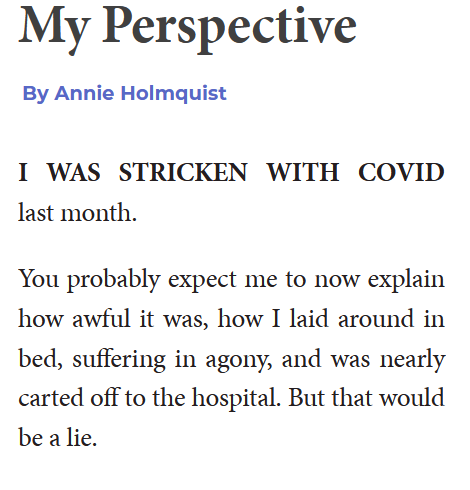The The Argument from Freedom means arguing process, not content.–ilana
NEW COLUMN IS either “The Wussification Of The West: Will We Ban Shakespeare For Othello And Shylock?” Or, “How Tucker Could Have Crushed His Dr. Seuss Segment,” currently on WND.COM, the Unz Review, Townhall.com.
“How Tucker Could Have Crushed His Dr. Seuss Segment” is on CNS.News, too.
And American Renaissance, where the conversation is lively.
And, the great American Greatness, the voice of next-generation conservatism.
Watch a video version of this column on YouTube.
And excerpt:
… Tucker’s mistake was his contents-driven defense of these kiddie books:
“Dr. Seuss was not a racist. He was an evangelist against bigotry,” pleaded Tucker. “He wrote an entire shelf of books against racism, and not in a subtle way. They were clearly, explicitly against racism. That was the whole point of writing them, to teach children not to be racist.”
Yawn.
Even if Dr. Seuss was the pedagogic, sanctimonious bore Tucker makes him out to be—actual racism in the targeted literature should be a peripheral issue, or no issue at all.
The Argument from Freedom means arguing process, not content.
Whether he intended it or not, the premise of Tucker’s defense of Dr. Seuss is that if we do detect “legitimate” racism in literature—there is a case for banning it. (Now, Tucker might not have meant it that way, but, this is what the structure of his argument portends.)
By contrast, freedom makes the case for an unfettered free market in ideas, good and bad. Freedom argues for politically impolite books to be published and read freely.
Banning books, moreover, assumes a lack of choice and agency among individual human beings. It’s also predicated on a higher authority that decides for the rest of us which cultural products are fit for our consumption.
The Argument from Freedom means arguing not over the contents of Mein Kampf or McElligot’s Pool, but for their publication irrespective of their content.
Which is why I say freedom’s argument is an argument from process, and not content.
Mein Kampf, and any offensive literature, needs to be available in a free society to free men and women who want it. And not because of history; so that we don’t forget it or repeat it (blah, blah, blah, as I heard it enunciated by Seattle’s radio mouth, Jason Rantz, the other day).
Alas, in the face of the cancellation of people and publications, cancelled conservatives just keep these logically weak and, frankly, loser mea culpas coming. Like the Argument from Hitler, which is a kind of “WhatAboutism”:
“Amazon and eBay sell Mein Kampf, why not Dr. Seuss? I want what Hitler got, Amazon and eBay. Me too. Boo-hoo.”
Tweeted “Musil Protégé”: “Conservatives [inadvertently] condone presentism. As Audrey says in Whit Stillman’s Metropolitan: ‘Has it ever occurred to you that our world judged by the standards of Jane Austen’s time would (look ridiculous)?’”
Most great literature doesn’t meet the sub-intelligent standards of the woke illiterati, who control the intellectual means of production—the schools (primary, secondary, tertiary), the press, publishing houses, think tanks, Deep Tech and the Deep State. …
…NEW COLUMN IS either “The Wussification Of The West: Will We Ban Shakespeare For Othello And Shylock?” Or, “How Tucker Could Have Crushed His Dr. Seuss Segment,” currently on WND.COM, the Unz Review and Townhall.com.
“How Tucker Could Have Crushed His Dr. Seuss Segment” is on CNS.News and American Renaissance as well.
Watch a video version of this column on YouTube.
- Photo by Castle Rock Entertainment via Getty Images
UPDATE II (3/16): Facebook:
Ray McClendon:
I’m a big Tucker fan too Ilana. Your article pointing out his arguments along with others who made the same argument give rise to mixed emotions. On the one hand, he (and they) are not wrong. There is some validity to their logic. After all, truth is often multifaceted. Plus, we’re all on the same side fighting side by side as allies in a common cause. On the other hand, you perform a great service when you point out there are far more substantive, powerful, and relevant arguments to be made, reminding me of that axiom, “Great minds may think alike, but greater minds think alone.” It’s why you’ve always been in a class by yourself. Thank you…
Ilana Mercer
No! I point to he fact that the argument from racism is irreverent if one is arguing classical liberal freedoms. Tucker, whom I love, was arguing from the leftist premise. The End. No argument. You can both love Tucker, and agree he presented a weak case for freedom. I do. That’s not wrong.
UPDATE III (4/9): When Adult humor is allowed:
Ed Powell: “You are my favorite African-American.”
Me: “That’s good ‘adult humor’. I am an African-American Jew.”
MrSweetaz: “@ILANAMERCER, LOL, Hitler wouldn’t have known what the hell to do with you.”
Me: “I think he would.”




